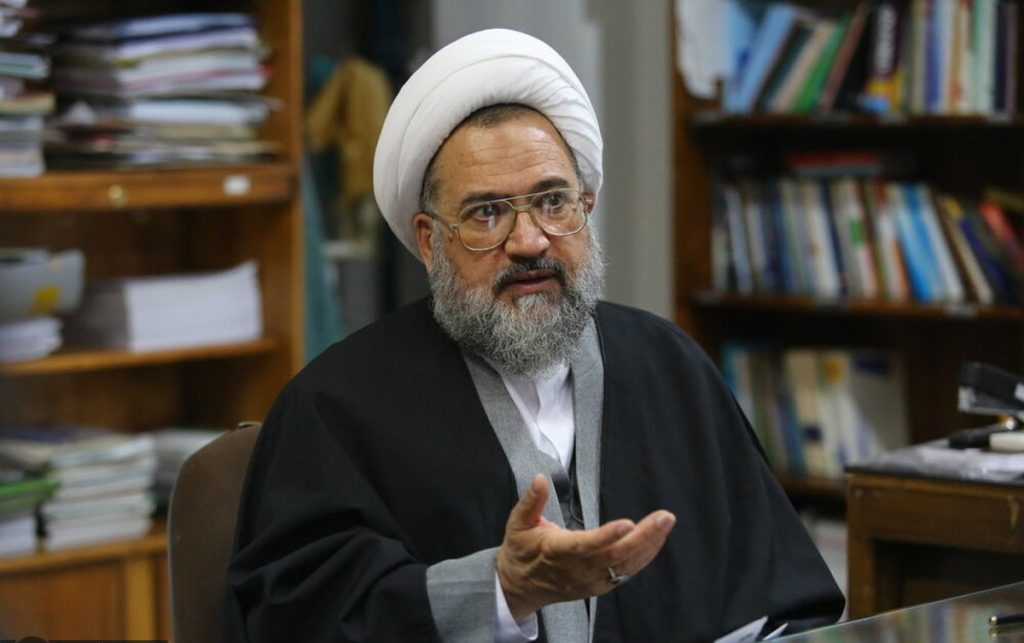Course Overview
Course Subject: Political Jurisprudence
Instructor: Ayatollah Abolqasim Alidoust
Day and Time: Wednesdays, 9 a.m.
Location: Dar al-Shifa Seminary School, Hazrat Masouma’s Shrine, Qom, Iran
About the Course
Political Jurisprudence is a branch of Islamic jurisprudence that focuses on exploring, deducing, and articulating religious laws that pertain to political matters. Covering all aspects of a Muslim’s life, this field is considered one of the most practical branches of Islamic sciences. Topics covered in political jurisprudence include citizen-to-citizen communication, relationships with the government, and the interactions between an Islamic state and other nations. With the spread of Islamization and the integration of religion and modernity, the study of political jurisprudence has become increasingly relevant. The goal of political jurisprudence and the jurists who specialize in this field is to create methodical harmony between changing social realities with fixed religious texts
From a Shiite perspective, the infallible Imam is at the center of Islamic society and his actions serve as a valuable source for forming political jurisprudence. This view is based on a specific interpretation of the political role of the infallible Imam. Political jurisprudence has also developed under the influence of Sunni jurisprudence during the centuries of their governance over Muslim states.
Shia’s political jurisprudence is historically divided into several periods of formation, compilation, consolidation, and actualization based on socio-political developments. In addition, considering different periods of Shia political jurisprudence depicts individual, social, and governmental approaches among the minimal and maximal standpoints to jurisprudence and, consequently, political jurisprudence.
Key topics in political jurisprudence include various political systems, theories of monarchy (absolute and legitimate), theories of Wilaya al-Faqih (appointment, election, supervision, and representation), Hisba matters, the rights and duties of the government and its citizens, apostasy, cooperation with tyrannical regimes, freedom, minority rights, and foreign policy of the Islamic state.
About the Instructor

Ayatollah Abolghasem Alidoust is a renowned scholar and jurist who teaches Fiqh at the Research Institute of Islamic Culture and Thought. Born in 1961 in the historical city of Abarkoh, Yazd, Iran, he began his seminary studies after completing elementary school. In 1975, he joined the seminary of Shiraz and went on to study in Qom under the guidance of Ayatollas Sotoudeh, Karimi Jahormi, and Salavati. In 1982, he enrolled in advanced courses (Dars Kharij) and was taught by prominent scholars including Ayatollas Fazil Lankarani, Mirza Javad Tabrizi, Nasir Makarim Shirazi, and Vahid Khorasani. He also studied philosophy under Ayatollas Garami and Ansari Shirazi, as well as Manzumah of Mulla Hadi Sabzewari under Ayatollas Javadi Amoli, Hassanzadeh Amoli, Mohammadi Gilani, Ansari Shirazi, and Misbah Yazdi.
Publications by the Instructor
1. “Jurisprudence and Expediency” Research Institute of Islamic Culture and Thought, 2008
2. “Academic Guidance of Students and Scholars” Dar al-Fekr Publications, 2004
3. “Jurisprudence and Custom” Research Institute of Islamic Culture and Thought 2004
4. “Jurisprudence and Reason” Institute of Islamic Culture and Thought, 2001
5. “Salsbil fi usul al-Tajzeah wa al-erab” Osva press 2003
6. “Mughni Al-Adeeb” Hawzah Ilmiyyah Publications. 1991
7. “A sip of Qur’anic literature: practical teaching of Arabic literature” Bostan Kitab, 2007
8. “Scientific introduction to the book: Purposes of the Sharia” Research Institute of Islamic Culture and Thought 2008
9. “Jurisprudence, Laws and Contracts (General Qur’anic Arguments)” Research Institute of Islamic Culture and Thought 2015
10. “Jurisprudence, Laws and Contracts (General Narrative Arguments)” Institute of Islamic Culture and Thought 2015
11. “Sources of Jurisprudence” University of Al-Mustafa Al-Alamiya, 2015
12. “Jurisprudence of new issues”, Ishraq Hikmat, 2015:
Efforts in the compilation of “Nuclear Jurisprudence” essays, Research Institute of Islamic Culture and Thought, 2017
Efforts in editing the collection of articles “Jurisprudence of Art 1”, Islamic School of Art, 2015
Efforts in editing the collection of articles “Jurisprudence of Art 2”, Islamic Art School, 2017
